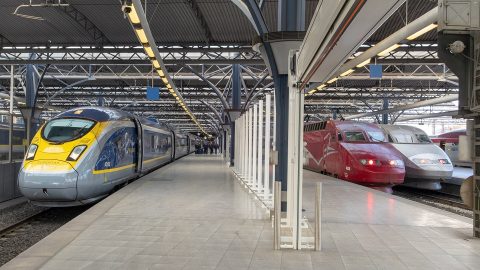
Coronavirus impact on railways: 18 March
Eurostar, Thalys and TGV trains at Brussel-Zuid station, source: Maarten Otto via Flickr
RailTech continues to cover the influence of coronavirus on the European rail sector. Below you can find some highlights of Wednesday, 18 March. The updates from Tuesday, 17 March, are available here.
Want to read more?
You have read all of your free premium articles for this month. Please become a subscriber to keep reading.
Subscribe now!
Take advantage of our exclusive offer to get full access to all premium content.



